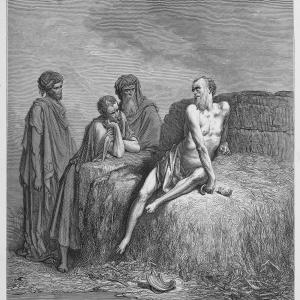
Danny Mortensen is the resources and circulation assistant at Sojourners. He spent the majority of his pre-college years in Latin America, where his parents worked as members of Wycliffe Bible Translators. After living in Colombia as a child and finishing high school in Panama, he moved to Beaumont, Texas, and studied sociology at Lamar University. While at Lamar, Danny worked closely with Release, a local small group-based college ministry and, after graduating, he continued his involvement with them for another year before moving to Washington, D.C., to work with Sojourners.
Danny has had profound and life-giving experiences in ministry to middle and high schoolers, college students, and the homeless people of his community in Texas. He has felt drawn to issues involving the human sex trade, the conflict in Palestine, and the lack of access to food that exists around the world and in the United States. He spent a month in Rwanda learning from two men who run a Christian reconciliation ministry in the wake of the 1994 genocide. While he has always felt most effective with personal hands-on ministry, he welcomes the opportunity to work with Sojourners and learn about the systemic-level, Christian social justice advocacy that is also essential. He looks forward to finding out how those two aspects work together.
Danny greatly enjoys hiking and camping, traveling (or, for the time being, making lists of countries where he wants to go), cooking/eating, reading, and different kinds of theology, and he notes that all of these activities are best engaged in with a group of friends.
Posts By This Author
Finding God in the Trials of Job
The world of Christian theology has seen its fair share of writings that address horrible suffering and the confusion about God’s character that it causes. The question has been on my mind in light of the Philippines’ calamity. Although satisfying answers are difficult to come by with a topic like this, I offer a few insights that have helped me to continue to trust God’s love. The biblical character of Job shows us how, as believers in a loving God, we should regard and respond to suffering around us.
It no longer surprises me when I hear people express cynicism and doubt about a caring God — I sometimes wonder why more Christians have not done so. Whose faith can remain undisturbed when Typhoon Haiyan kills 5,000 Filipinos and inflicts misery on thousands more? I recall a photo of a woman weeping by her child’s body inside a damaged church. Who can imagine her despair? Can we conceive of the hell endured in the same region by enslaved women and girls who are raped and degraded every day, every hour?
Has Drone Firepower Conquered Christ's Love?
For centuries, followers of Jesus have wondered how they should relate to states and governments. Recent documents from Amnesty International, Human Rights Watch, and the United Nations bring such concerns to the fore, highlighting the cruel collateral damage of many of President Barack Obama’s personally ordered drone strikes — strikes that according to the president, are legal and in accord with international law, use technology that is precise and limit unnecessary casualties, eliminate people that are real threats, and prevent greater violence.
Rather than considering the humanity of our (perceived) enemies and seeking reconciliation and restorative justice, we default to catching and killing. In doing so, we give the widest berth possible to Jesus's teachings and examples of self-sacrificial enemy love. In both Matthew 5 and Luke 6, Jesus tells us that to love our enemies is to be children of God, for radical love and kindness are his nature and his perfection. Loving enemies is essential to anyone who would claim God as his or her Father. Jesus said, "Love." Not, "Love unless you happen to be the ones in charge and in possession of firepower. In that case, kill the bastards."
We are charged with loving our world indiscriminately, self-sacrificially, and with great humility, and that should always inform our relationship with the state and government.

